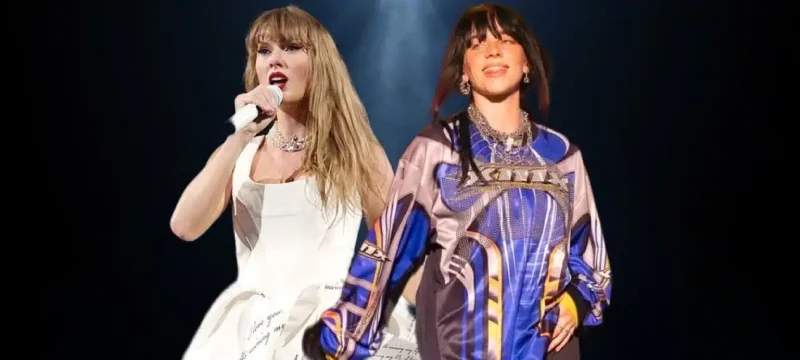If you’ve ever been part of a fandom—whether it’s for pop music, films, comics, or something else—you know it’s more than just being a fan. It’s like joining a secret society where obsession and loyalty are unspoken vows that bind members together. However, within the whirlpool of modern fandom, an unsettling trend has emerged: women are being pitted against each other, fostering a toxic atmosphere of unnecessary rivalry between celebrities. This anti-feminist phenomenon, perpetuated by fans who claim to support these stars, disrupts these passionate communities like an unchecked virus.
Recently, the rumour mill in the fandom world suggested that Taylor Swift strategically released new content to block Billie Eilish’s new album, “Hit Me Hard and Soft,” from reaching Number 1 on the charts, thereby maintaining “The Tortured Poets Department” at the top. Let’s break down this fan-concocted theory and explore why these two fandoms created the illusion of hostility between the pop powerhouses.
Also Read: Tiktok Removed Popular Songs by Taylor Swift, Billie Eilish, Olivia Rodrigo, and More
Imagine the pop music landscape as a grand chessboard, with Taylor and Billie as its reigning queens. On one side, we have the Swifties, Taylor’s fiercely loyal fanbase. On the other, we have the Avocados, who are equally protective of Billie. It’s a classic case of fandom rivalry, but with a twist of modern-day marketing warfare.
The rumours began when fans noticed the suspicious timing: Billie released her album, and on the same day, Taylor announced three new digital editions of hers. Given Taylor’s history of unexpected releases, this wasn’t surprising—it fit her signature style. Billie responded by releasing sped-up and slowed-down versions of her album, including an extended track. In no time, the two fandoms were in a heated battle, creating a narrative of sabotage and confrontation. Avocados accused Taylor of being conniving and greedy, while Swifties defended her vehemently, insisting Billie should accept her Number 2 debut.
In reality, Taylor and Billie have immense respect for each other’s work. The tension was confined to the fandoms, not the artists themselves. Why would Taylor want to overshadow Billie? Some say it’s purely business to ensure chart dominance. Others believe it was coincidental. However, hardcore fans acted as if the idea of multiple strong female artists coexisting was too radical to accept. Instead of applauding their business acumen or trusting Billie’s album to end “The Tortured Poets Department’s” reign, toxic fans turned to online battles, spreading memes and erupting on social media.
This isn’t a new phenomenon. Recall the feud between Britney Spears and Christina Aguilera’s fandoms in the early 2000s. These two pop icons were constantly compared and pitted against each other, creating a ‘good girl’ versus ‘bad girl’ narrative. Fans’ constant meddling created genuine tension between the stars. Today, similar behavior is seen in the saga between Selena Gomez and Hailey Bieber’s fandoms, perpetuating the ‘jilted ex-lover’ versus ‘smug wife’ narrative, often overshadowing their individual achievements and identities.
What drives this behavior? The pathology of fandom. Fans identify deeply with their idols, perceiving any threat to their success as a personal attack, triggering defensive and aggressive responses. This rivalry underscores a troubling aspect of fandom culture: the tendency to dehumanize the artists. Fans often forget that these celebrities are real people with real emotions.
So, the next time you’re gearing up to defend your idol, pause and ask yourself: “Am I being my best feminist self?” Recognize the harm in perpetuating rivalries and focus on supporting artists for their talents and contributions, rather than tearing others down.







